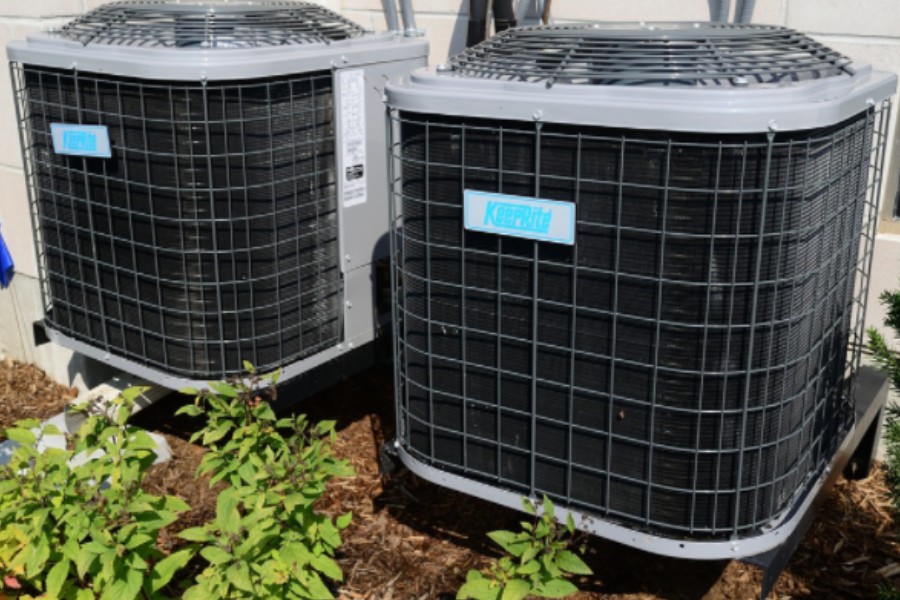
Air conditioning has become an indispensable part of modern life, providing relief from sweltering heat and maintaining a comfortable indoor environment.
This technological marvel has come a long way since its inception, revolutionizing the way we live, work, and interact with our surroundings. In this article, we will explore the history, development, and the significant impact air conditioning has had on various aspects of society, from residential comfort to industrial advancements.
1. A Brief History of Air Conditioning
The roots of air conditioning can be traced back to ancient civilizations, where people used various methods to cool their living spaces, such as fans and evaporative cooling systems. However, the modern air conditioning system as we know it today owes its beginnings to the brilliant mind of Willis Carrier.
In 1902, Carrier, an American engineer, invented the first modern electrical air conditioning system to control humidity in a Brooklyn printing plant. This innovation led to the rise of commercial air conditioning systems in movie theaters, department stores, and other public spaces, improving customer comfort and encouraging people to spend more time indoors, especially during the hot summer months.
2. Technological Advancements in Air Conditioning
Since the invention of the first air conditioning system, numerous technological advancements have taken place to enhance the efficiency and functionality of these cooling systems. Key developments include:
a. Central Air Conditioning: Initially, air conditioning units were standalone and localized. However, the development of central air conditioning systems allowed for cooling large buildings and multiple rooms from a single unit, making them more practical and cost-effective for various applications.
b. Energy Efficiency: With growing environmental concerns and energy costs, the focus shifted towards developing energy-efficient air conditioning systems. Today, we have advanced compressors, heat exchangers, and refrigerants that significantly reduce the carbon footprint of these systems while delivering better performance.
c. Smart and IoT Integration: The integration of smart technology and the Internet of Things (IoT) has revolutionized air conditioning. Smart thermostats allow users to control their cooling systems remotely, optimizing energy usage and ensuring comfort even when away from home.
d. Sustainable Cooling: Researchers and engineers are actively working on developing sustainable and eco-friendly cooling technologies. These include systems that use renewable energy sources, natural refrigerants with lower global warming potential, and innovative cooling techniques that minimize environmental impact.
3. Impact on Comfort and Health
The impact of air conditioning on human comfort and health cannot be overstated. Beyond simply providing a cool environment during hot weather, air conditioning helps in multiple ways:
a. Temperature Regulation: Air conditioning keeps indoor spaces at a consistent and comfortable temperature, preventing heat-related illnesses and enhancing overall well-being.
b. Improved Air Quality: Modern air conditioning systems often come with built-in air filtration, reducing allergens, dust, and pollutants, thereby benefiting individuals with respiratory conditions.
c. Better Sleep: Maintaining a cool temperature in bedrooms can improve sleep quality by creating a conducive environment for rest and relaxation.
d. Productivity and Concentration: In workplaces, air conditioning boosts employee productivity by providing a comfortable atmosphere that supports focus and concentration.
4. Economic and Social Impact
Air conditioning has had far-reaching economic and social implications:
a. Economic Growth: The widespread adoption of air conditioning in various industries, such as manufacturing, agriculture, and healthcare, has contributed to increased productivity and economic growth.
b. Urbanization and Migration: Air conditioning has played a crucial role in enabling people to settle in regions with otherwise extreme climates. This has facilitated urbanization and population migration to warmer regions, impacting urban planning and infrastructure development.
c. Entertainment and Leisure: The popularity of air-conditioned spaces has transformed the entertainment industry. The success of movie theaters, shopping malls, and indoor amusement parks is significantly attributed to the allure of a cool and pleasant atmosphere for visitors.
5. Environmental Concerns and Sustainability
As much as air conditioning has improved our lives, there are concerns about its environmental impact. The significant energy consumption and the use of potent greenhouse gas refrigerants have contributed to climate change and ozone depletion. However, the industry is actively addressing these issues by adopting greener technologies and promoting sustainable practices.
Conclusion
From its humble beginnings to becoming an indispensable aspect of modern living, air conditioning has transformed how we experience our surroundings, making hot summers more bearable and shaping our lifestyles. As we move forward, it is crucial to strike a balance between comfort and sustainability, ensuring that future generations can enjoy the benefits of air conditioning without harming the planet. Continuous research and innovation will pave the way for even more energy-efficient and environmentally friendly cooling solutions, allowing us to stay cool while being responsible custodians of our environment.
- LISC CEO Michael T. Pugh Recognized Among 2024 Worthy 100 Leaders
- NY Lawmakers Celebrate Historic MENA Data Recognition Bill Signed By Hochul
- Sponsored Love: Leadership Skills Training Courses: Invest In Your Future Today
- Senator Hoylman-Sigal Calls On Independent Schools To Adopt NYC Public School Calendar
- Mayor Adams Celebrates 65 Million NYC Visitors In 2024, Second-Highest Ever
Become a Harlem Insider!
By submitting this form, you are consenting to receive marketing emails from: . You can revoke your consent to receive emails at any time by using the SafeUnsubscribe® link, found at the bottom of every email. Emails are serviced by Constant Contact









